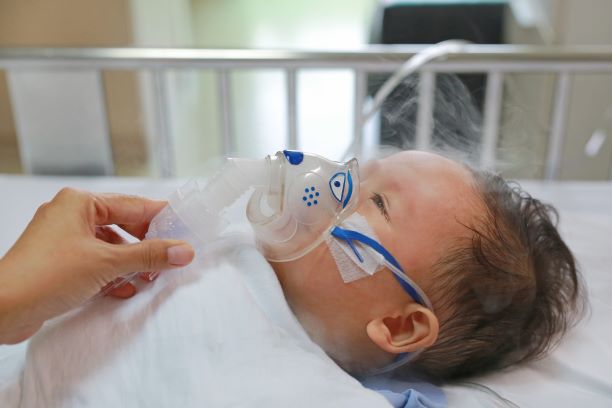
The US Food and Drug Administration (FDA) has approved AstraZeneca and Sanofi’s Beyfortus (nirsevimab), a form of passive immunisation for infants born during or entering their first RSV season.
The therapy can also be given to infants up to 24 months of age who are vulnerable to severe RSV disease through their second RSV season.

Discover B2B Marketing That Performs
Combine business intelligence and editorial excellence to reach engaged professionals across 36 leading media platforms.
Beyfortus is an intramuscular monoclonal antibody therapy that acts by neutralising the RSV-F protein. This prevents the unfolding of the protein, blocking viral entry.
The antibody’s approval is based on data from three clinical studies (trials 03, 04 and 05) and a positive recommendation from a 9 June FDA Advisory Committee meeting. The European Medicines Agency approved the prophylactic treatment in October 2022. Regulatory authorities in China, Japan and several other countries are also assessing the therapy.
Prior to Beyfortus’ approval, the only approved RSV preventative antibody treatment for infants was AbbVie’s Synagis (palivizumab), which was approved in 1998. However, AstraZeneca’s newly approved medicine is the first preventative option that specifically protects the broad infant population through its first RSV season.
In a February 2023 email interview with Pharmaceutical Technology, Nancy Jaser, a senior infectious disease analyst at GlobalData, predicted that upon its approval, Beyfortus would replace Synagis as the standard of care passive immunisation for paediatric RSV patients.

US Tariffs are shifting - will you react or anticipate?
Don’t let policy changes catch you off guard. Stay proactive with real-time data and expert analysis.
By GlobalDataBeyfortus’s approval follows the FDA approval of the first RSV vaccine for older adults, GSK’s Arexvy. Patients aged 60 years and above are eligible to take the immunisation. This was followed a few weeks later by approval for Pfizer’s RSV vaccine Abrysvo, intended for the same population of individuals aged 60 years and above.
Phase II data from Trial 03 (NCT02878330) demonstrated that infants treated with Beyfortus had a 6.9% lower incidence of medically attended RSV lower respiratory tract infection (MA RSV LRTI). It also demonstrated that Beyfortus decreased the risk of MA RSV LRTI by approximately 70% relative to placebo. In the Phase III (MELODY) Trial 04 (NCT03979313), this increased to 75% efficacy compared to placebo. Data was taken from the Phase II/III (MEDLEY) Trial 05, showing that the drug had a favourable safety profile.
GlobalData is the parent company of Pharmaceutical Technology.
According to GlobalData, the only other RSV monoclonal antibody antiviral in Phase III trials is Merck’s clesrovimab. Merck is investigating the drug in a Phase II/III (NCT04767373) and a Phase III (NCT04938830) study.
In a press release, AstraZeneca’s executive vice president Iskra Reic said: “Beyfortus represents an opportunity for a paradigm-shift in preventing serious respiratory disease due to RSV across a broad infant population in the US.”




